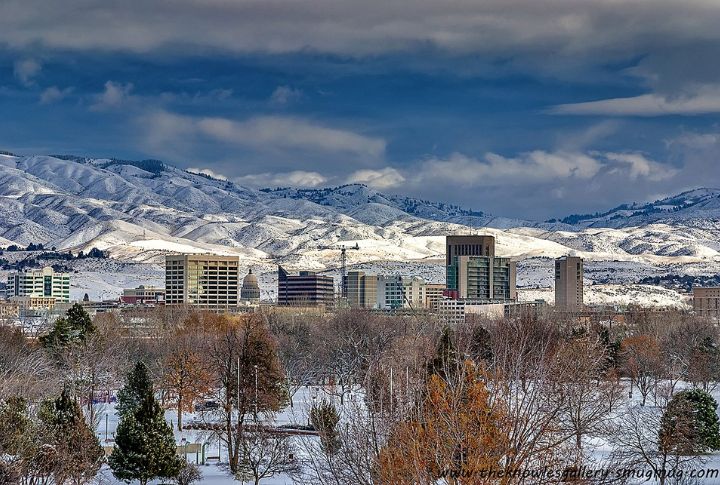States
20 States Where Concealed Carry Laws Work Best For Citizens

Carry laws aren’t always a mess—but let’s be honest, they often are. Still, there are states that keep things practical. They don’t ask you to jump through hoops or study a dozen exceptions. This list focuses on places where concealed carry isn’t a maze of fine print. Just straightforward support for responsible citizens who know how to handle it.
Alaska

Alaska doesn’t ask for a permit to carry concealed, and never has since 2003. Residents and visitors alike face no extra hurdles. There’s no requirement to notify law enforcement either, and gun ownership here ranks among the highest per capita in the country.
Wyoming

Since 2021, even non-residents can carry concealed without a permit in Wyoming. Reciprocity agreements span more than 35 states, and open carry is widely accepted. With no gun registration and minimal off-limits zones, it’s one of the most permissive states for gun carriers.
Arizona

By kicking off license-free concealed firearm laws early in 2010, Arizona backs it with strong Stand Your Ground protections. Visitors carrying valid licenses from other states are welcome. Plus, the law blocks cities from adding limits and allows firearms in some bars, under specific conditions.
Idaho

Constitutional carry applies to both residents and visitors, with no duty to inform law enforcement while carrying. A permit remains available for those traveling across state lines. Restrictive laws are minimal, and national rankings consistently place them high for gun rights support.
Texas

Texas residents aren’t required to have certification or training to legally possess a concealed firearm if they’re eligible adults. Even so, over 1.5 million Texans still hold LTCs. The state supports open carry, has gun-friendly zones, and firmly defends Second Amendment rights.
Montana

Permitless possession became law in 2021, eliminating the need for government approval. Gun registration isn’t required, and carrying in vehicles or on select campuses is allowed. Moreover, ongoing legislative backing has kept restrictions light and ensured steady protection for firearm owners statewide.
South Dakota

South Dakota adopted license-free carry in 2019 and recognizes all valid out-of-state licenses. Private gun sales need no background checks. With firearm education baked into hunting culture and strong NRA backing, this state maintains solid ground for rights-focused residents.
Mississippi

In Mississippi, concealed firearms are legally allowed in bags, holsters, or purses with no license required. Enhanced certifications grant access to additional locations. The state blocks local gun rules and doesn’t track firearm ownership—plus, campus carry is authorized for those with proper training.
Oklahoma

Since 2019, eligible adults can lawfully conceal firearms in Oklahoma without a permit or notifying law enforcement. A handgun license is still offered for travel. Campus carry is allowed with a permit, and open possession is welcome across most public areas.
Utah

Adults over 21 can legally possess a concealed firearm with no license required, though optional training still exists for reciprocity. Utah also offers firearm safety education in schools. Cities can’t impose stricter laws, and the state’s permit is one of the most widely accepted across the U.S.
Indiana

Indiana no longer requires a permit to carry a handgun, and cities can’t override that with their own rules. Residents may still apply for a license to travel. Campus carry laws are clearly defined and recent reforms gained strong statewide backing.
Kentucky

Anyone 21 or older can carry concealed in Kentucky without a license. Those who travel can still apply for one. With Castle Doctrine laws and a ban on firearm confiscation during emergencies, even the DMV supports carry in some state offices.
Arkansas

In Arkansas, no law specifically requires a permit to carry concealed, and court rulings back that freedom. Residents aren’t restricted by magazine limits, and they benefit from strongly protected property rights and a legal climate that rarely prosecutes lawful carriers.
West Virginia

At age 21, residents can carry without government-issued authorization. Those between 18 and 20 may do so with training and licensing. West Virginia’s constitution directly protects the right to carry, while over 35 states honor its reciprocity agreements.
Missouri

Carrying concealed with no license is legal statewide, even in public places and vehicles. Open carry faces no limitations. Missouri also waives background checks for private sales and prevents cities from enacting tighter gun laws than those set by the state.
New Hampshire

New Hampshire’s constitutional carry law allows anyone to carry without a permit or training. Out-of-state permits are recognized and gun owners aren’t tracked. The state balances strong Second Amendment rights with a reputation for being one of the nation’s safest.
North Dakota

Only residents are authorized for no-license carry, while travelers can access the optional license system in North Dakota. No registration is required for firearms. A hunter safety card may qualify as legal proof, and business owners can lawfully carry it at their place of work.
Iowa

Iowa dropped its permit requirement in 2021 but still honors most others. Gun sellers don’t need to keep transaction records. Residents can carry on public lands and loaded firearms are allowed in vehicles, giving Iowans flexibility with minimal red tape.
Maine

Since 2015, no license is needed to carry concealed in Maine. However, certification is still available for reciprocity. Background checks aren’t required for private transfers, and the state allows firearms in national parks. Maine favors “Yellow Flag” laws over stricter alternatives.
Tennessee

Adults 21 and up—or 18 for military members—can legally possess a concealed firearm without a permit in Tennessee. Enhanced permits provide broader access. The law forbids local interference, enables carry in state parks, and supports accessible firearm training throughout the state.

